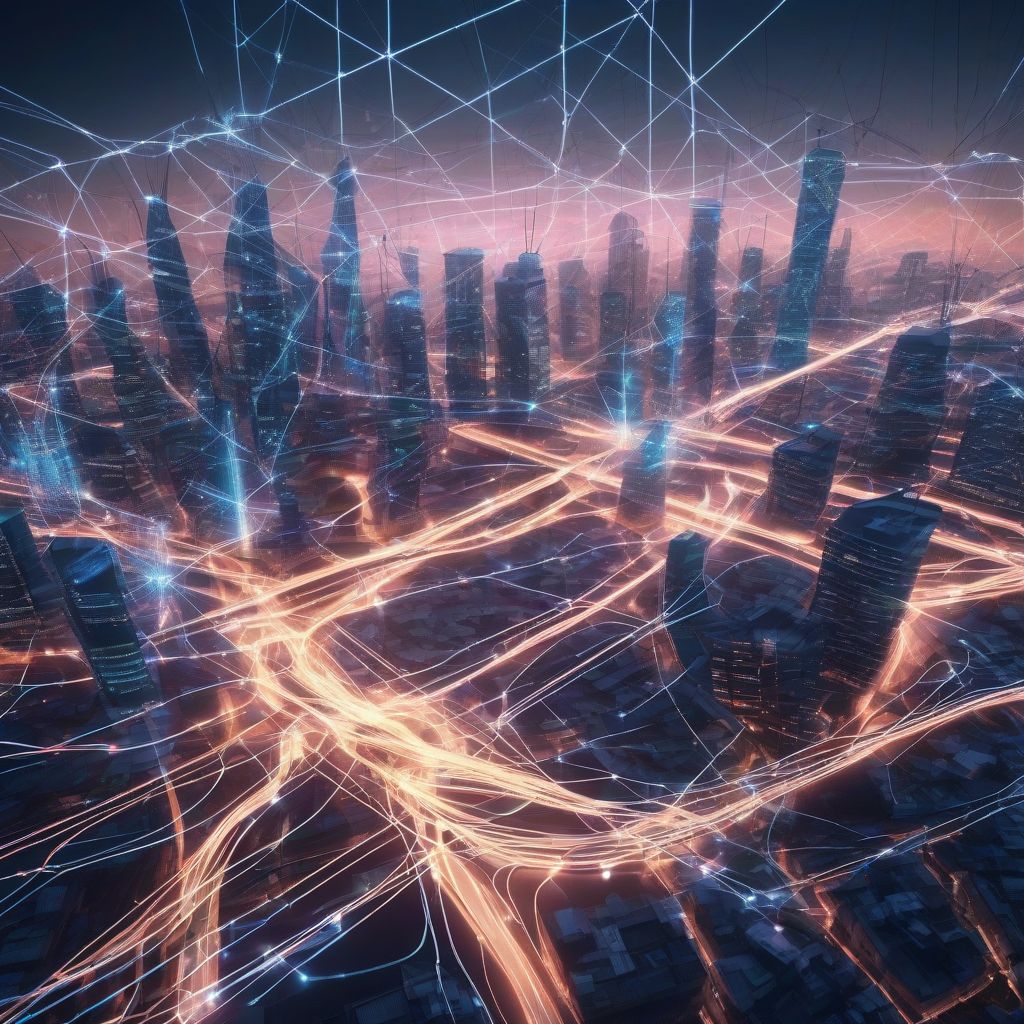Imagine a world where power outages are a distant memory, energy costs are significantly reduced, and our reliance on fossil fuels is minimized. This isn’t a futuristic dream, but a rapidly approaching reality thanks to the integration of Artificial Intelligence (AI) into smart grids. But how exactly is AI making this possible? Let’s delve into the fascinating world of intelligent energy management and explore the ways AI is revolutionizing our power systems.
Understanding the Role of AI in Smart Grids
Smart grids are essentially modernized power grids that use digital technology to monitor and manage the transport of electricity from all generation sources to meet the varying electricity demands of end-users. AI acts as the brains of this operation, analyzing vast amounts of data and making real-time decisions to optimize energy distribution and consumption.
Predictive Analytics for Optimized Energy Distribution
One of the key ways AI supports energy efficiency is through predictive analytics. AI algorithms can analyze historical data, weather patterns, and real-time energy consumption to predict future energy demands with remarkable accuracy. This allows grid operators to anticipate peak usage periods and proactively adjust energy distribution, preventing overloads and minimizing energy waste. “Imagine predicting a heatwave and proactively rerouting power to ensure everyone stays cool,” says a leading AI researcher, highlighting the transformative potential of predictive analytics.
Enhancing Grid Stability and Reliability
AI also plays a crucial role in enhancing grid stability and reliability. By constantly monitoring the grid for anomalies and potential faults, AI can identify and address issues before they escalate into major outages. This proactive approach not only minimizes downtime but also extends the lifespan of grid infrastructure.
Demand Response Management through Smart Devices
AI-powered smart devices, such as thermostats and appliances, can communicate with the smart grid and automatically adjust their energy consumption based on real-time grid conditions. During peak demand periods, these devices can reduce their energy usage, helping to balance the load and prevent strain on the grid. This demand response management is crucial for integrating renewable energy sources, which can be intermittent by nature.
Real-World Applications of AI in Smart Grids
The benefits of AI in smart grids are not just theoretical; they’re being realized in real-world applications across the globe. Several pilot projects and deployments are showcasing the transformative potential of this technology.
Optimizing Renewable Energy Integration
AI is instrumental in optimizing the integration of renewable energy sources like solar and wind power. These sources are inherently variable, and AI algorithms can predict their output based on weather patterns and other factors. This allows grid operators to effectively manage the intermittent nature of renewables and ensure a stable and reliable energy supply.
Reducing Transmission and Distribution Losses
Traditional power grids suffer from significant energy losses during transmission and distribution. AI can identify areas of inefficiency and optimize the flow of electricity to minimize these losses, leading to significant cost savings and reduced environmental impact.
Enabling Microgrids and Peer-to-Peer Energy Trading
AI is also facilitating the development of microgrids, which are localized grids that can operate independently or connect to the main grid. This enhances grid resilience and allows for peer-to-peer energy trading, where individuals can buy and sell excess energy generated from their own renewable sources.
The Future of AI-Powered Smart Grids
The future of energy management lies in the continued development and integration of AI into smart grids. As AI algorithms become more sophisticated and data availability increases, we can expect even greater efficiency gains, enhanced grid reliability, and a seamless transition to a cleaner, more sustainable energy future.
 AI-Powered Smart Grid
AI-Powered Smart Grid
Overcoming Challenges and Embracing the Potential
While the benefits of AI in smart grids are undeniable, there are challenges to overcome. Data security and privacy concerns need to be addressed, and robust regulatory frameworks are needed to ensure responsible AI deployment. However, the potential benefits far outweigh the challenges, and continued investment in research and development will pave the way for a truly intelligent and sustainable energy future.
Conclusion
AI is transforming the energy landscape by empowering smart grids to operate more efficiently, reliably, and sustainably. From predictive analytics to demand response management, AI is playing a crucial role in optimizing energy distribution, integrating renewable energy sources, and enhancing grid stability. While challenges remain, the future of energy lies in the intelligent application of AI, promising a cleaner, more efficient, and resilient power system for generations to come. What are your thoughts on the role of AI in shaping the future of energy? Share your insights in the comments below!



